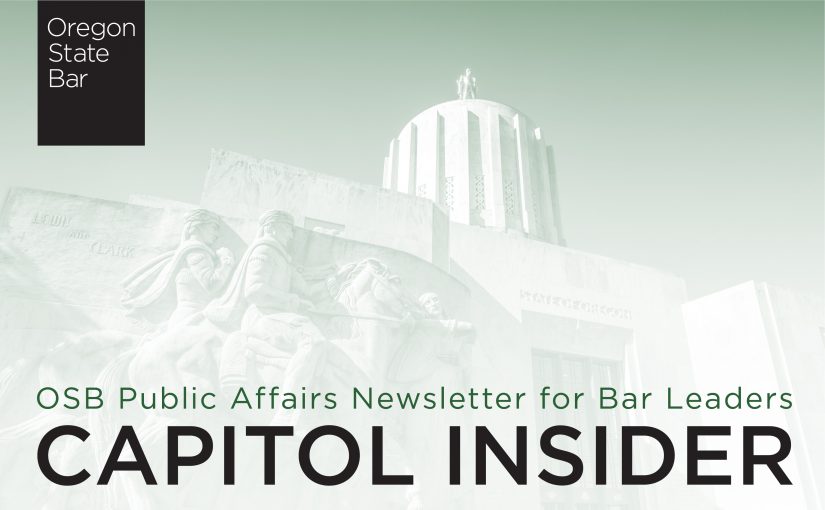Table of Contents
Legislature Makes Changes to Ballot Measure 110
House Bill 4002 is the main work product of the legislature’s efforts to address the fentanyl crisis in Oregon and modifies the continued implementation of Ballot Measure 110.
The bill modifies current statutes related to delivery of a controlled substance in response to the decisions in State v. Hubbell, 314 Or App 844 (2021), aff’d, 371 Or 340 (2023), to expand the definition of “deliver” to include possession of a controlled substance with the intent to deliver.
The bill also creates new sentencing options for misdemeanor possession charges, including the option to reduce jail sentences for time the defendant spends in drug treatment. The bill encourages probationary sentences, which may include a requirement for drug treatment. In the case of probation violations, the bill permits structured jail sanctions to be imposed.
HB 4002 also creates new deflection provisions, which encourage law enforcement and district attorneys to refer individuals to drug treatment providers in lieu of arrest or prosecution. The Criminal Justice Commission (CJC) is assigned the task of studying best practices for deflection programs and reporting back to the legislature with recommendations.
Much of the funding to implement HB 4002 is housed within HB 5204. That bill allocates $20.7 million into a grant program administered by the CJC to be used, among other things, for county deflection programs.
As part of the $20.7 million provided for grants, the bill makes direct allocations to 23 of Oregon’s 36 counties, providing 50% of their funds for deflection programs up front. The other 13 counties will receive deflection funds through the normal grant process.
The bill also allocates funds for a number of other criminal-justice-related purposes. This includes dedicating nearly $7 million to the CJC for specialty court grants. The bill also makes a one-time $10 million allocation to the Oregon Jail-Based Medications for Opioid Use Disorder Grant Program, which is likewise administered by the CJC. Additionally the bill allocates $4 million for the Restorative Justice Grant Program, which was created in 2021, and $500,000 for a jail reentry pilot program.
The bill has passed the House and Senate and is awaiting the Governor’s signature.
Bills of Interest
HB 4001 – Establishes the Task Force on Specialty Courts. Directs the task force to study certain issues concerning specialty courts and to provide the results of the study to the interim committees of the Legislative Assembly related to the judiciary no later than November 15, 2024. The bill has passed the House and Senate and is awaiting the Governor’s signature.
SB 1595 – This bill was identified by some advocates as “The Family Financial Protection Act of Oregon”. The bill increases a number of exemptions from garnishment and execution, and modifies various provisions relating to unfair debt collection practices. The bill has passed the House and Senate and is awaiting the Governor’s signature.
HB 4056 – Requires counties to establish a process to determine the amount of any surplus proceeds from the sale of property deeded to the county after a property tax lien foreclosure. Requires counties to notify all interested parties of the surplus. Requires counties to determine the right to the surplus. Requires counties to deposit the surplus in full in an interest-bearing account until the amount and the distribution of the surplus have been determined. The bill has passed the House and Senate and will soon be sent to the Governor.
SB 1541 – Creates new circuit court judge and staff positions in Washington, Jackson, and Clackamas Counties. New positions take effect in Washington and Jackson Counties July 1, 2024, and in Clackamas County July 1, 2025. The bill has passed the House and Senate and is awaiting the Governor’s signature.
Board of Governors Legislative Reception
On February 22, 2024, the Board of Governors hosted its annual President’s Reception at the Salem Convention Center. The event was co-hosted by Chief Justice Meagan Flynn and the Supreme Court Council on Inclusion and Fairness which is chaired by Justice Bronson James.
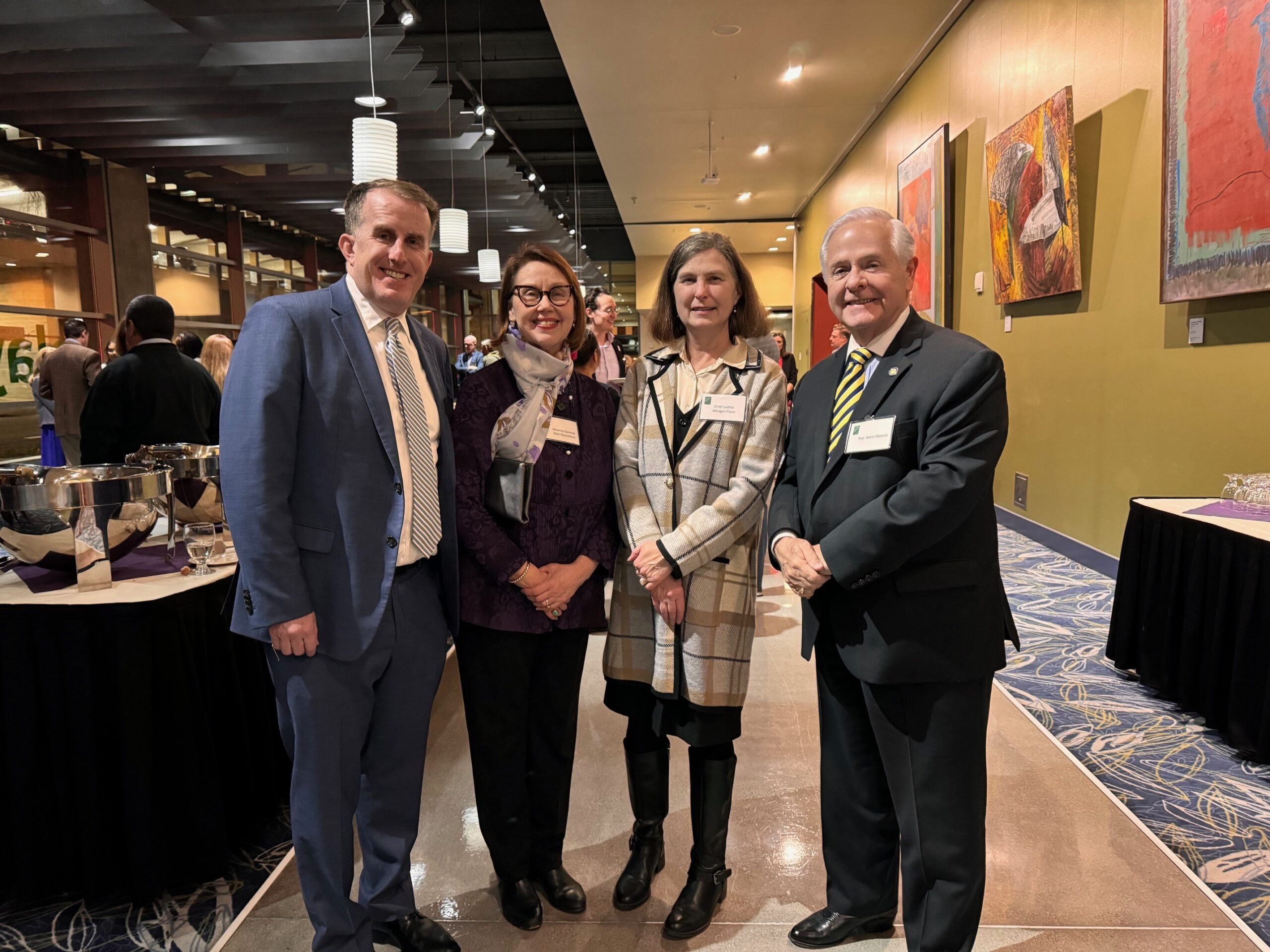
| OSB Board President David Rosen (left) Attorney General Ellen Rosenblum (center), Chief Justice Meagan Flynn (center) and Rep. Kevin Mannix (right) |
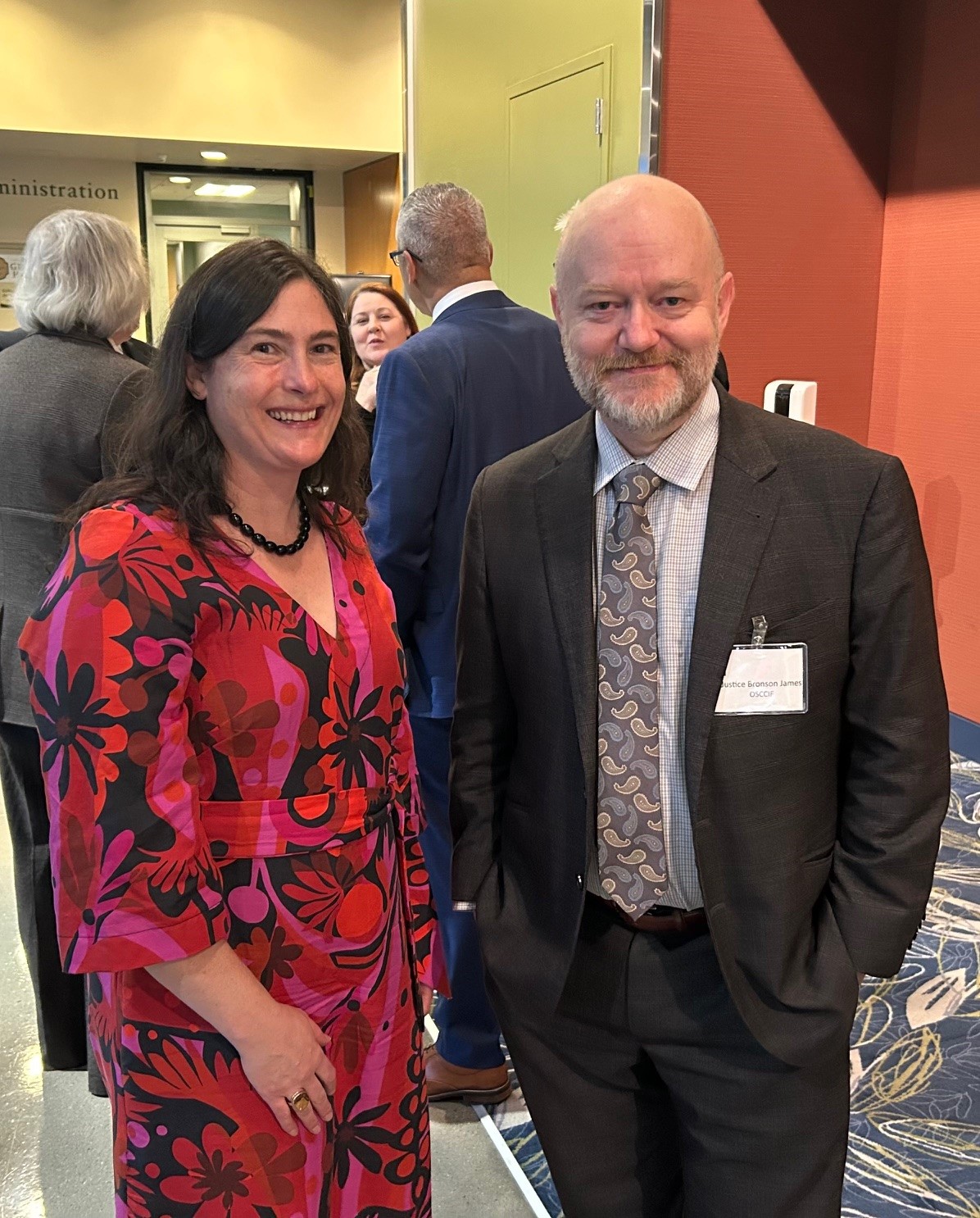
| Executive Director PDSC Jessica Kampfe (left) and Chair of OSCCIF Justice Bronson James (right) |
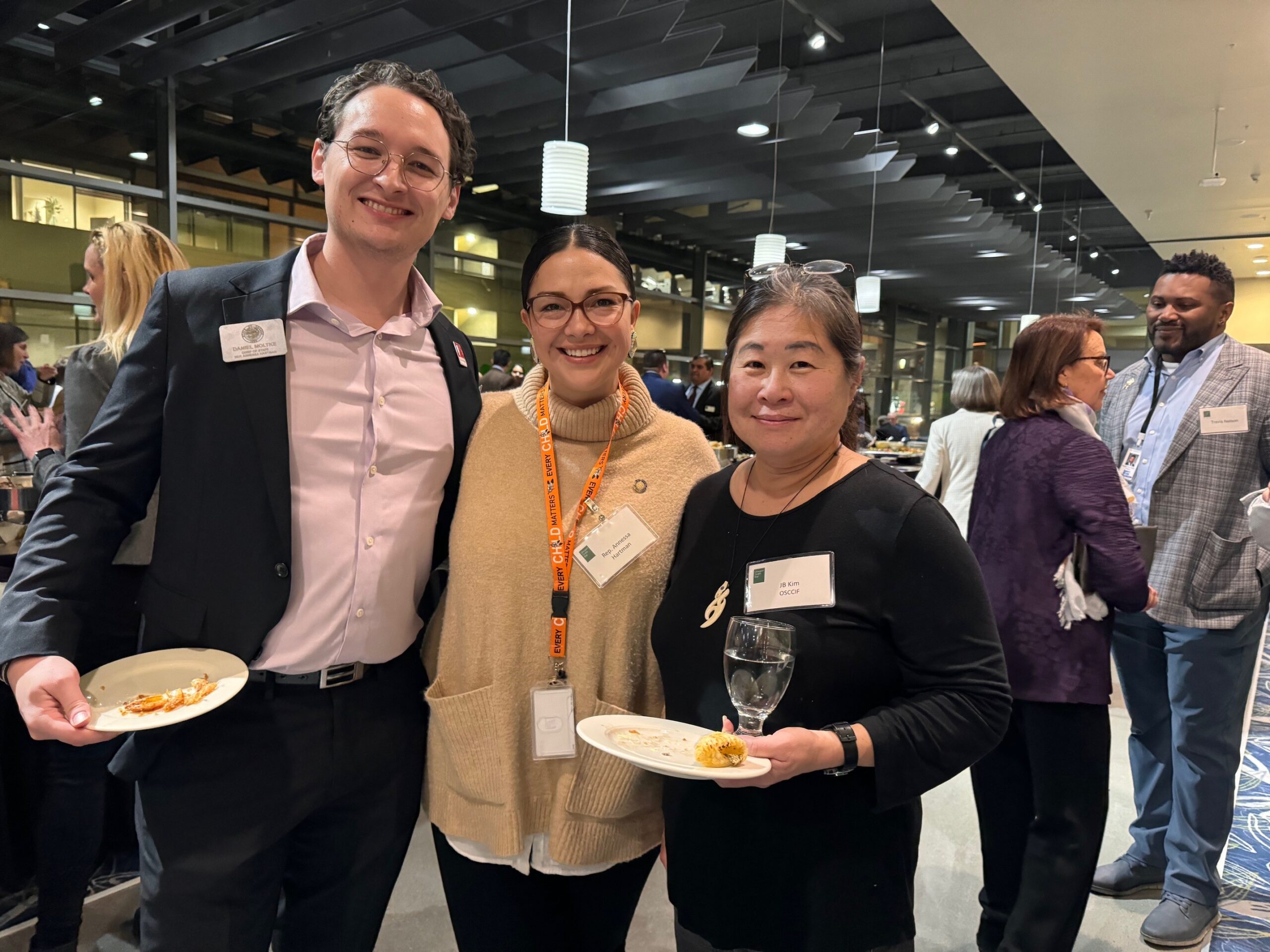
| Daniel Moltke, Chief of Staff for Rep. Hartman (left), Rep. Annessa Hartman (center) and OSB Director of Diversity and Inclusion JB Kim (right) |
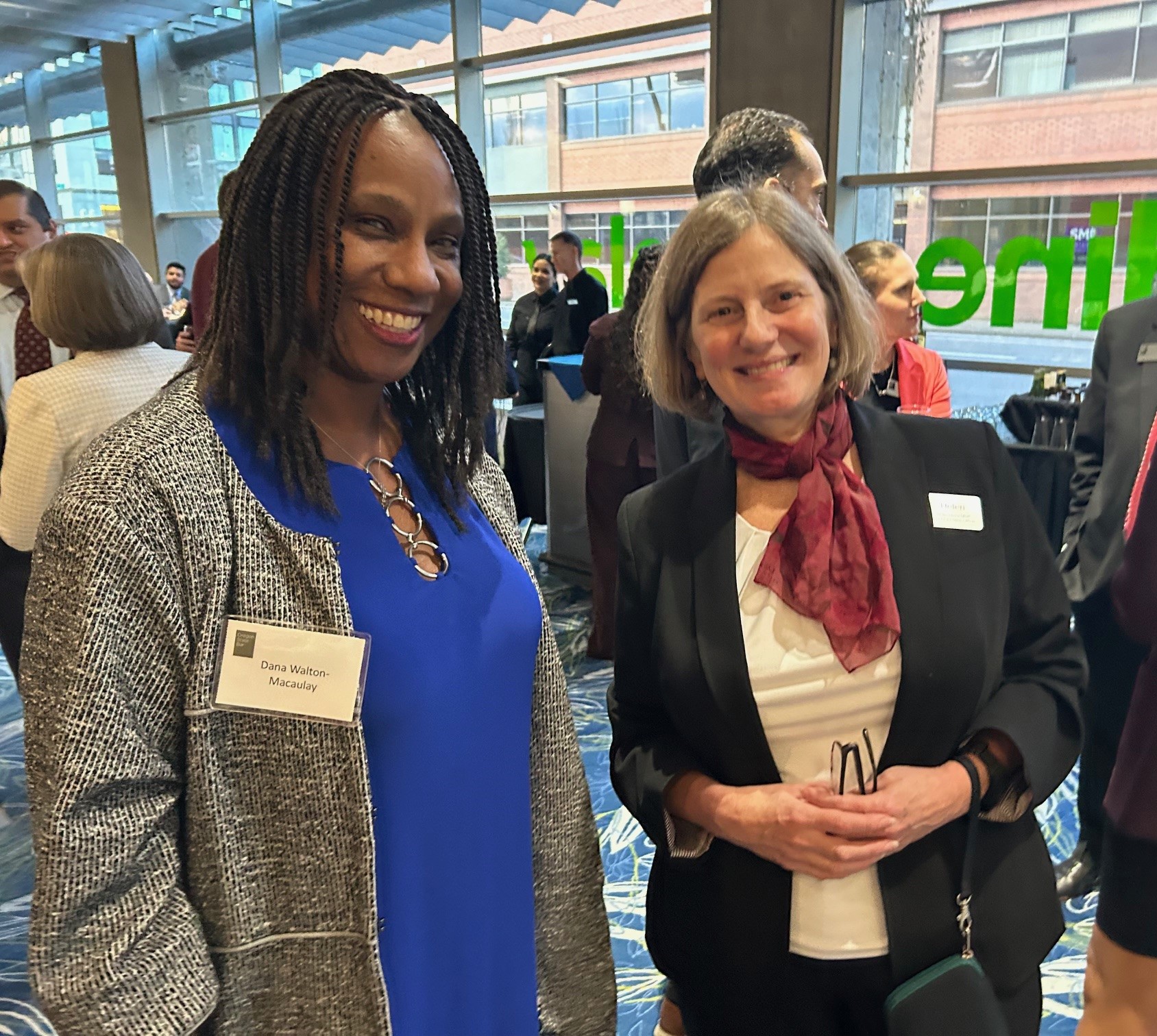
| OJD Director of Civil and Criminal Programs Division Dana Walton-Macaulay (left) and OSB Chief Executive Officer Helen Hierschbiel (right) |
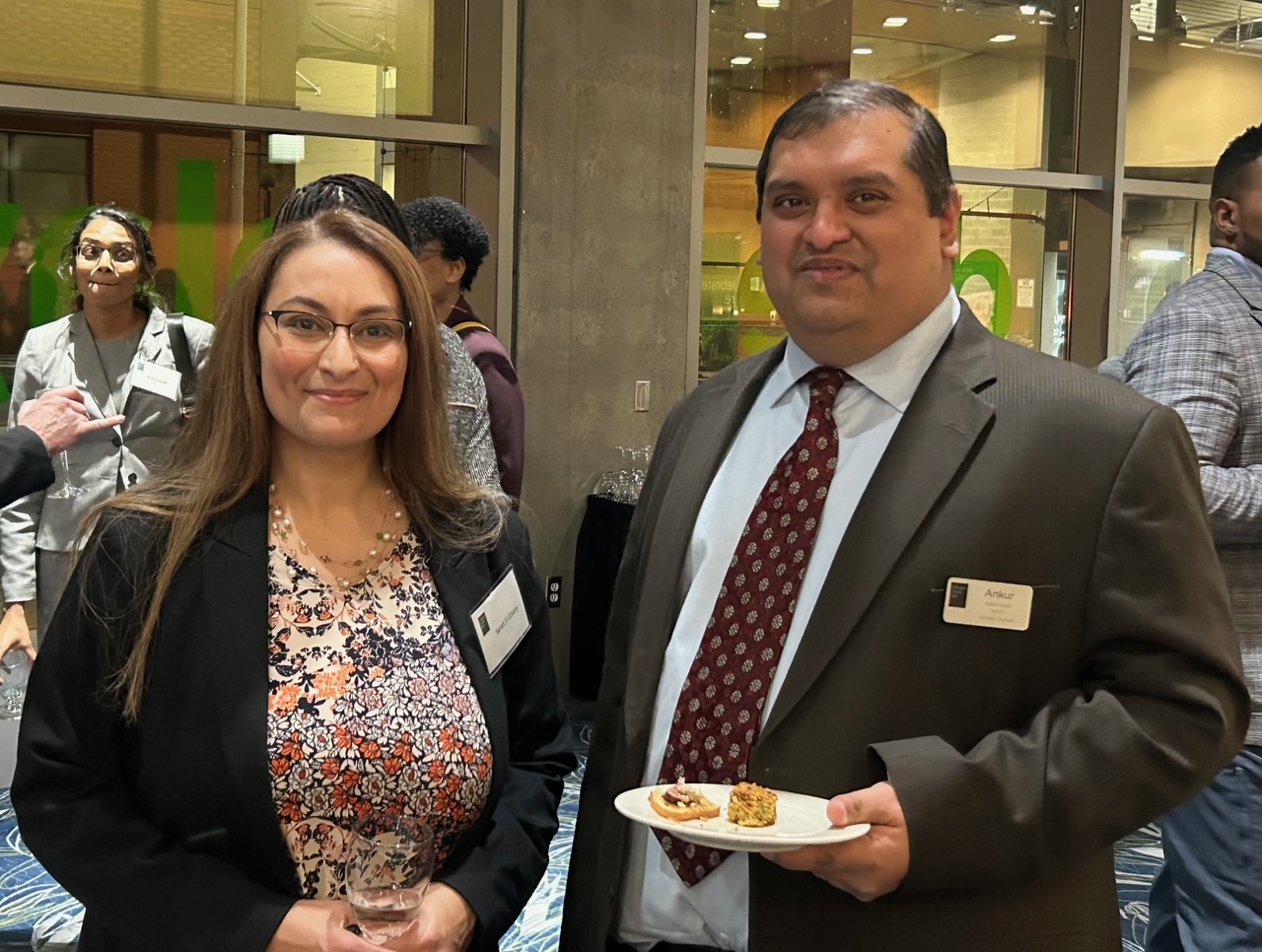
| Sarah El Ebiary, Chief of Staff for James Hieb (left) and OSB General Counsel Ankur Doshi (right) |
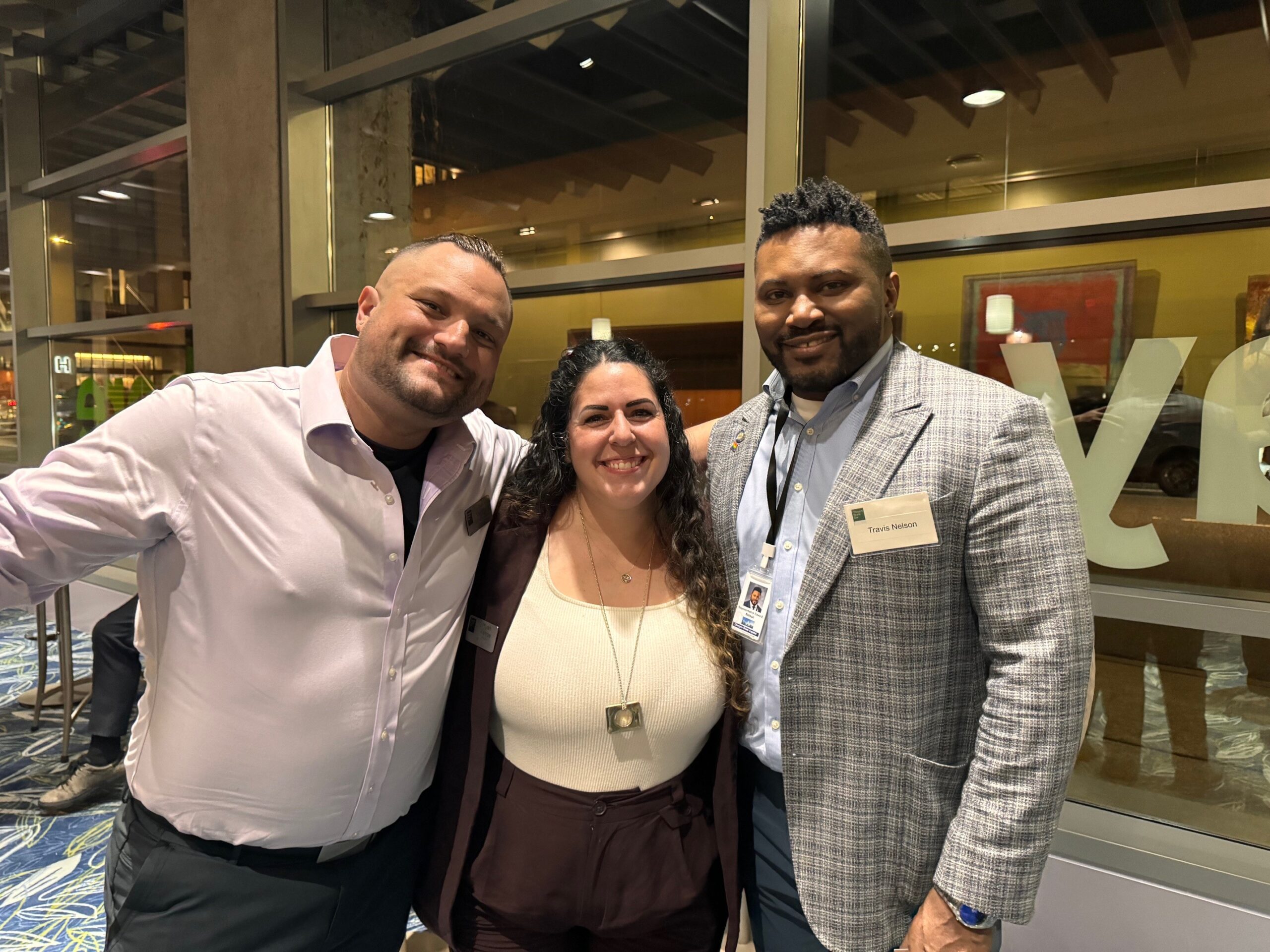
| OSB Board Member Nicholas Yanchar (left), OSB President-Elect Myah Kehoe (center) and Rep. Travis Nelson (right) |
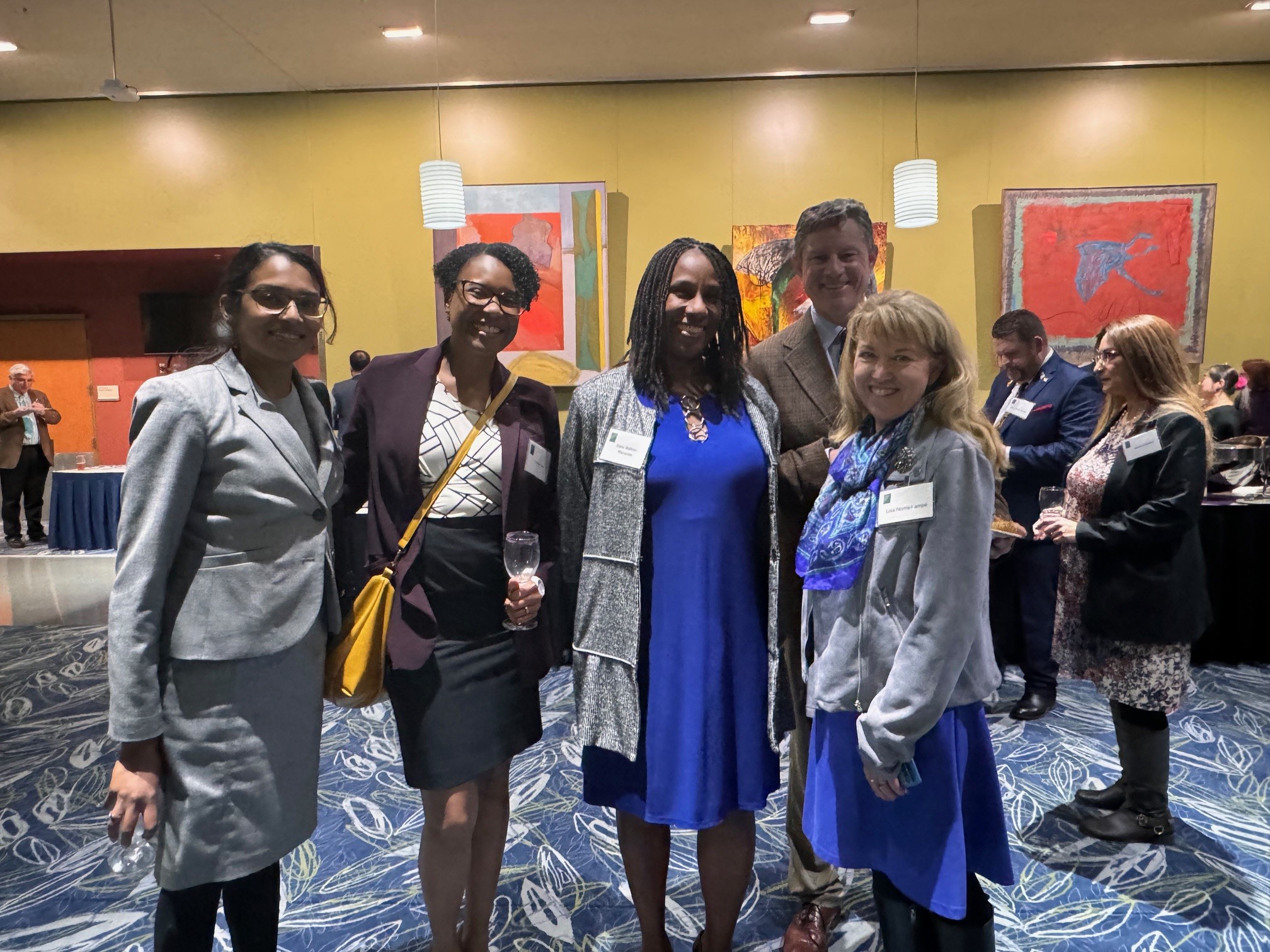
| OJD Access to Justice Counsel Shalini Vivek (left), OJD Counsel in Charge OEEI Valerie Colas (center), OJD Director of Civil and Criminal Programs Division Dana Walton-Macaulay (center) and Supreme Court Appellate Legal Counsel Lisa Norris-Lampe (right) |
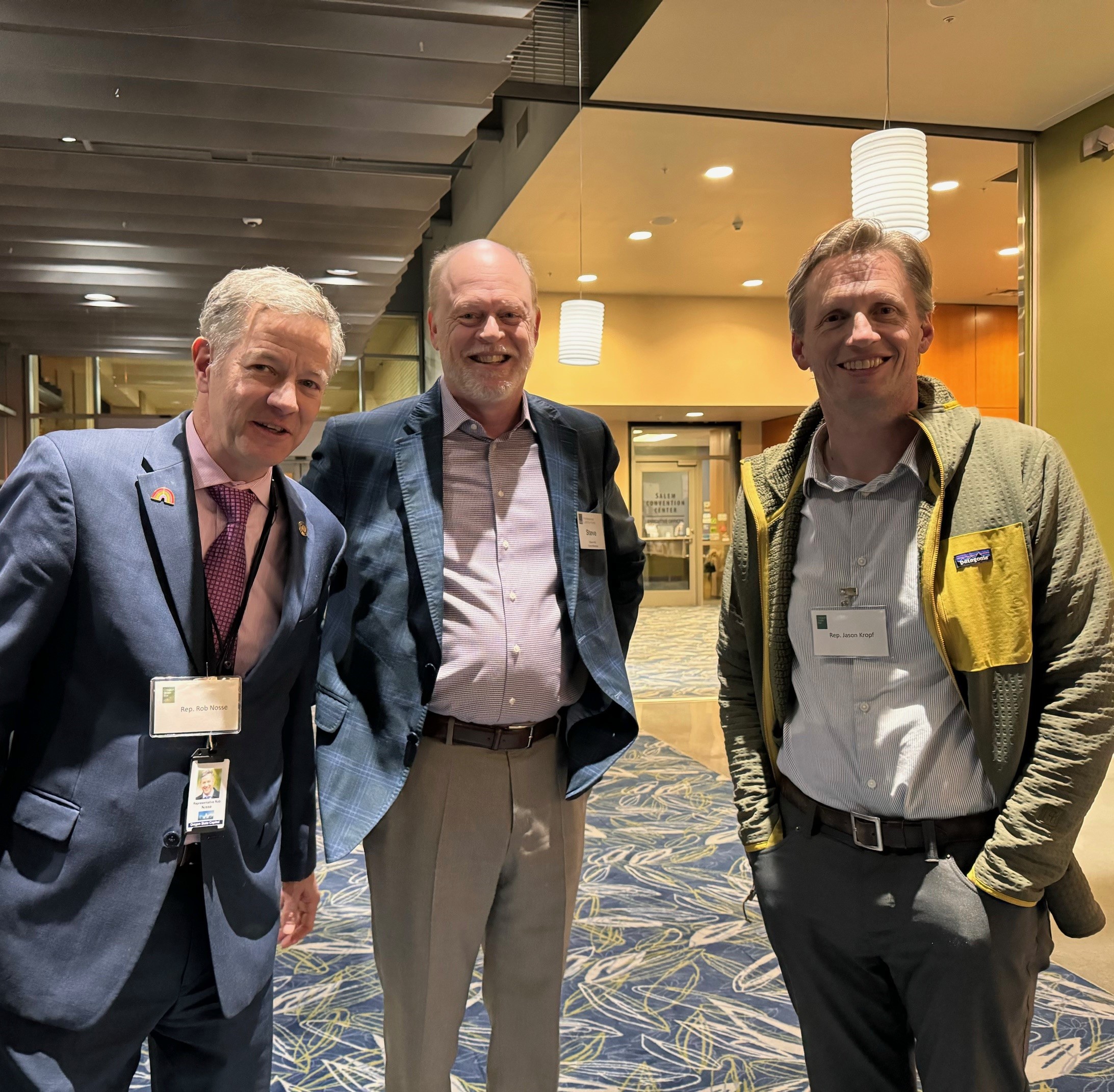
| Rep. Rob Nosse (left), PLF Board Member Chair Steve Hill (center) and Rep. Jason Kropf (right) |
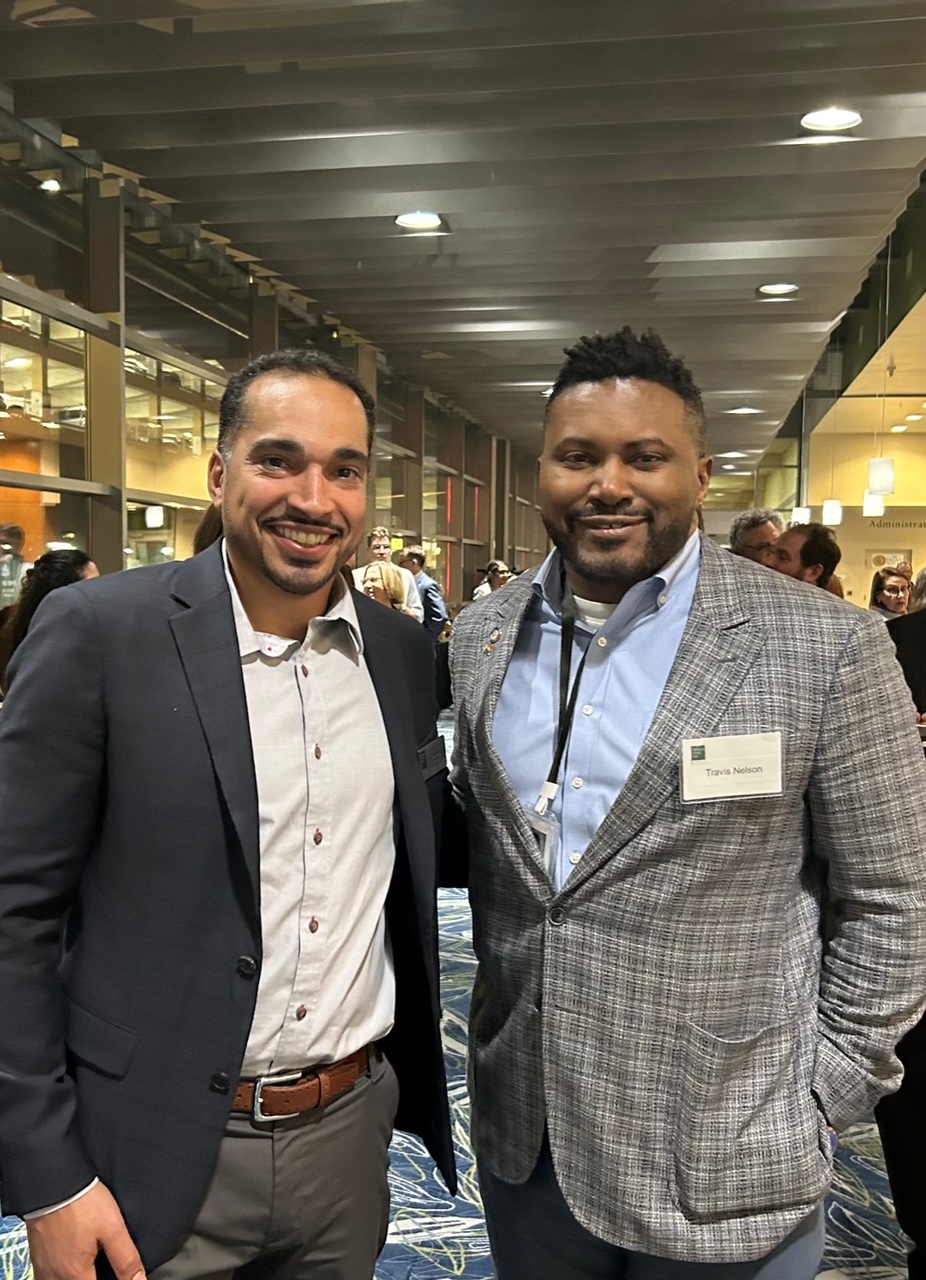
| OSB Board Member and Immediate Past-Chair of Public Affairs Committee Gabriel Chase (left) and Rep. Travis Nelson (right) |
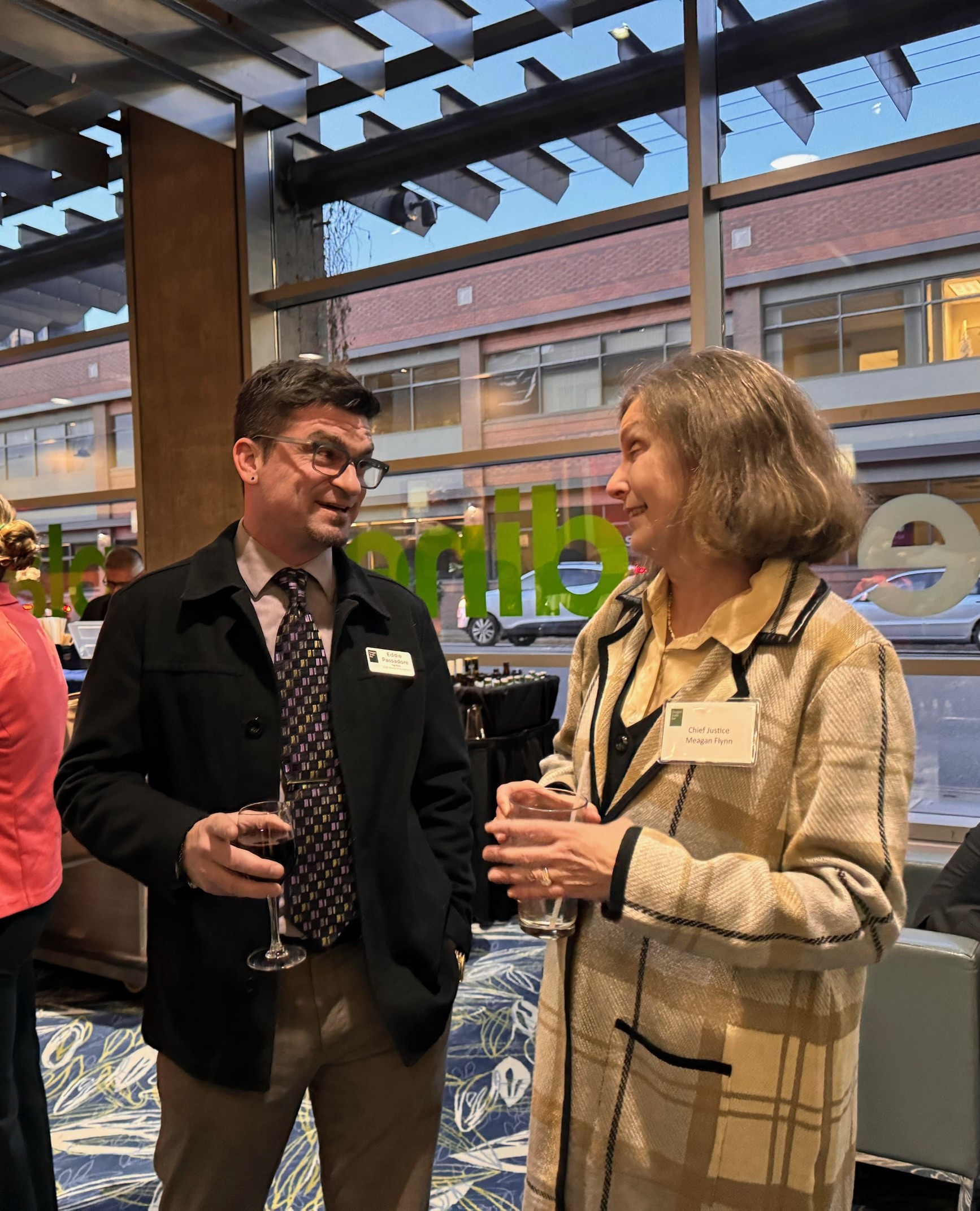
| OSB Public Board Member and Public Affairs Committee Member Eddie Pasadore (left) and Chief Justice Meagan Flynn (right) |
The reception provided an opportunity for the Board of Governors and members of the local bar to discuss the bar’s legislative priorities with legislators and share feedback on bills and issues currently under consideration in the Capitol. The reception has become an annual event held in coordination with the February Board of Governors meetings in Salem.
This year attorneys and members of the public attended, as well as legislators and staff.
OSB Law Improvement Legislative Proposals for 2025 Due April 1, 2024
During the 2025 legislative session, the Oregon State Bar will introduce a package of law improvement legislation, which includes bills proposed by OSB sections and committees. These proposals often clarify statutory ambiguities or amend laws to conform to court decisions or court practices.
OSB sections interested in proposing legislation for the 2025 legislative session must provide those proposals to the OSB Public Affairs Department no later than April 1, 2024. Sections are limited to no more than three proposals, and each must be approved by the section executive committee.
Additional information on the OSB’s Law Improvement Program can be found on the Public Affairs page of the OSB Website. Sections that are currently exploring making such a proposal should contact Susan Grabe at [email protected] or Matt Shields at [email protected] for more information.
Farewell, Amy!
Amy Zubko is leaving her position as Public Affairs Director here at the Oregon State Bar. Amy has been a key part of the Public Affairs team for the last decade and has been instrumental in advancing the bar’s public services mission in Salem. She has also been responsible for most of the content of this publication. We at the bar will miss her and wish her the best in the future.
*The next edition of the Capitol Insider will have a budget update and additional information on the 2024 legislative session.
Archives
Thank you for reading the Oregon State Bar’s CAPITOL INSIDER.
The archives are available here.
2024 Oregon State Bar Officers and Public Affairs Chair
David Rosen, President, Oregon State Bar
Myah Kehoe, President Elect, Oregon State Bar
Lee Ann Donaldson, Immediate Past President, Oregon State Bar
Curtis Peterson, Chair, Public Affairs Committee, Oregon State Bar Board of Governors
For questions about articles, legislation, or the legislative process, please contact:
Susan Grabe, Chief Communications and Public Affairs Officer
Matt Shields, Public Affairs Staff Attorney
Sara Doherty, Public Affairs Administrative Assistant
